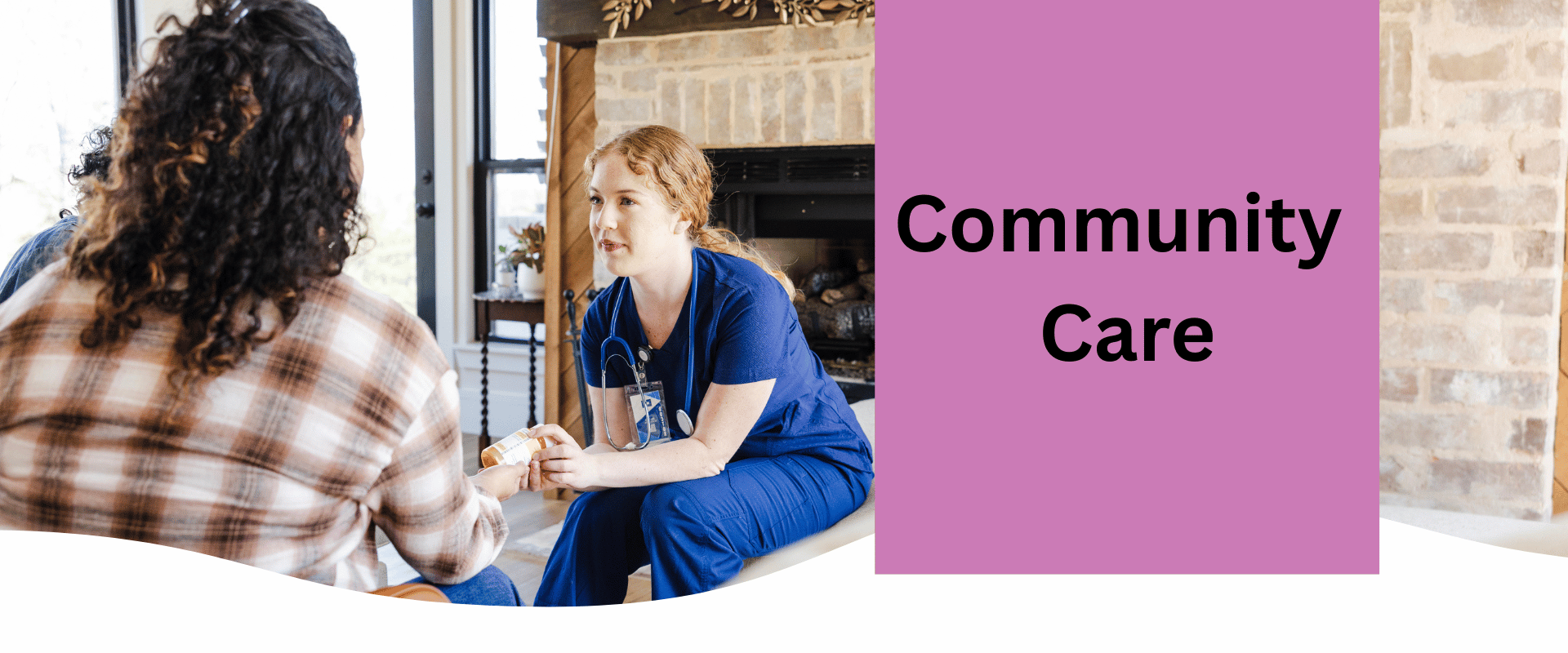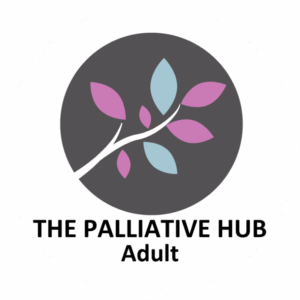
Home » Palliative Care Journey » Community Care
Community Care
Many people who have a palliative care need are cared for at home. This section offers advice on caring for a loved one being cared for at home. At the bottom of this page, you will find further links and downloads about caring for someone at home.
The aim of palliative care services in the community is to support those that choose to remain living at home with an advancing cancer diagnosis or a progressive life-limiting illness including residents living in a community hospital or nursing home. Understandably, this is a difficult time for you as a person with a life-limiting illness, caregiver or family member.
Community-based palliative care ensures that people with a life-limiting illness receive comprehensive, person-centred support within their own homes or as a resident of a nursing home, care home or community hospital, allowing them to live as comfortably and fully as possible in familiar surroundings and with those important to them. This approach emphasises symptom management, emotional and social support, quality of life and facilitating end-of-life planning.
Key components of community based palliative care include:
- Symptom management: Addressing physical symptoms such as pain, nausea, fatigue and breathlessness to improve comfort.
- Emotional and psychological support: Providing support to people and those important to them to cope with the emotional aspects of serious and life-limiting illness.
- Social support: Providing information and support with accessing relevant grants, benefits and support including home adaptations.
- Care coordination: Collaborating with primary care services including GPs, Public Health Nurses / District Nurses and other health and social care professionals to ensure comprehensive care.
- End of life care planning: Assisting with advance care planning and facilitating discussions about end-of-life preferences.
Palliative care within the community is a collaborative approach, ultimately your GP is responsible for your medical care with the support of the Specialist Palliative Care team within the community. Public Health Nurses/District Nurses and Specialist Palliative Care Nurses will provide nursing care and support, based on a person’s needs. Other health and social care professionals within the community may also be involved in delivering care, these may include Occupational Therapists, Physiotherapists, Speech and Language Therapists, Dieticians and Social Workers.
Palliative care at home can be a deeply emotional experience, both for the person with the life-limiting illness and those important to them. Take the time to reflect, consider and process all the information you have received to help inform your future care decisions. Your views and wishes are central to decisions that will be made about the care you receive so it may be useful to consider what support and structures are currently in place and what supports are needed to allow for care at home to continue, if that is your preference. Your Community Specialist Palliative Care Team and your community service providers such as your GP and Public Health Nurses/ District are key to these discussions and they will be able to provide advice and guidance regarding available supports and how to access them. Advice from other health and social professionals may also be useful to help inform conversations and decision making.
Clear communication is key and will ensure a co-ordinated approach in supporting care at home. Your views are important and will be central to the decisions that will be made in relation to the care provided.
Further Information and Help
Click the videos below to hear more information:
View links to services that may be able to help by clicking here.





